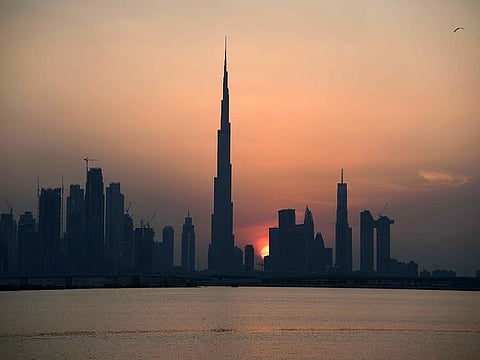UAE travel agencies await official go-ahead on tourist visa issuance
Booking enquiries from Lebanon and Jordan see sharp gains along with those from India

Dubai: Apart from India, enquiries from Lebanon and Jordan for tourist visas have shot up significantly since the UAE opened up these for all vaccinated passengers. The UAE decision on issuing of tourist visas comes into effect today and also includes countries from which entry was previously banned such as Pakistan.
Although most tourist visa enquires are from destinations in Asia and the Middle East, ticket issuals have increased from other destinations too, said a spokesperson for Omeir Travel Agency. “A lot of searches are happening from Singapore, Europe, the UK and even the US as well.”
Travellers from several European countries and US can get a visa on arrival. The Omeir Travel Agency spokesperson added that customers had begun checking for flight tickets to UAE ahead of the Expo’s opening on October 1.
Travel agencies are still waiting for all the official confirmations related to new tourist visa rules. “We are waiting for more protocols from airlines and immigration to start applying for visas and then confirm the flight bookings for tourists,” said Ranju David from Happy Trip Tours.
Landing rules
Tourist visa applicants must be fully vaccinated with any one of the vaccines approved by the World Health Organization (WHO). Travellers will also need to do a mandatory rapid PCR test at the airport, with the previous requirements remaining valid for non-vaccinated groups. In addition, fully vaccinated tourists can also register their vaccination certificates through the ICA platform or ‘Al Hosn’ app to enjoy the advantages granted to vaccinated people.
The tourist visa is granted for either 30 days or 90 days, and usually applies for those who are not eligible for a visa-on-arrival in the UAE. On March 21, the UAE Cabinet had also approved a five-year multiple entry tourist visa for all nationalities.
Fare fluctuations
Flights from New Delhi to Dubai can cost between Dh800 to Dh1,500, while a seat from Mumbai can set passengers back by Dh2,000 at the higher end. Flights from Kochi to Dubai fall within the range of Dh700 to Dh1,000.
Karachi-Dubai flights cost at least Dh1,000, with some airlines charging close to Dh1,900. Lahore might be the most expensive option for anybody looking to fly out of Pakistan – an Emirates flight is seen costing more than Dh5,000.
Airlines will benefit
The surge in travel to the UAE will benefit regional airlines that have traditionally depended on traffic from South Asia. “flydubai welcomes any announcement that eases the current travel restrictions in place on its network and in our home in the UAE,” said a spokesperson to Gulf News. “We are pleased to see our network grow to pre-pandemic numbers as we relaunch operations to existing routes and open up underserved markets.
“We look forward to starting our flights to Ankara, Budapest, Ljubljana and Warsaw over the next few weeks as we continue to connect the region with direct air links to the UAE, especially as the country gets ready to welcome visitors for Expo 2020.”
No go for India
While the UAE drops travel curbs, India has extended its suspension of scheduled international passenger flights until September 30. India has air bubble pacts with around 25 countries. Under an air bubble pact between two countries, special international flights can be operated by their airlines between their territories.
Airports to the ready
When UAE permitted travel for residents from certain countries earlier this month, one of the requirements was a rapid PCR test done before departure. Several airports, particularly in Pakistan and India, were caught on the wrong foot as they did not have those facilities, resulting in last-minute flight cancellations.
The UAE’s move to re-open tourist visas will surely lead to an influx of travelers at these air hubs and put more pressure on airports’ newly-established COVID-19 screening centers. “We were among the first airports in India to introduce testing facilities in the airport,” said a spokesperson for Bengaluru airport.
An Afghan situation
Meanwhile, Pakistan’s airports are facing a different challenge altogether. The recent takeover of Kabul by the Taliban has led to a refugee crisis, which is showing signs of escalation.
“At this very moment and since the past two weeks, Islamabad Airport has been jam-packed,” said an official at Pakistan’s Civil Aviation Authority (CAA). “A majority have been evacuated, but 1,000 Afghan refugees will come to Pakistan daily and be stationed in Islamabad or Rawalpindi hotels.”
The Islamabad airport “is majorly concerned with the incoming refugees than the departures,” said the official.
Sign up for the Daily Briefing
Get the latest news and updates straight to your inbox






